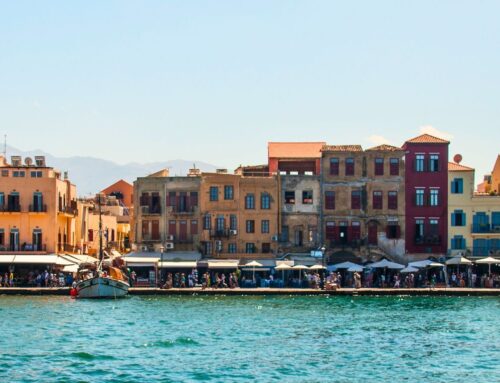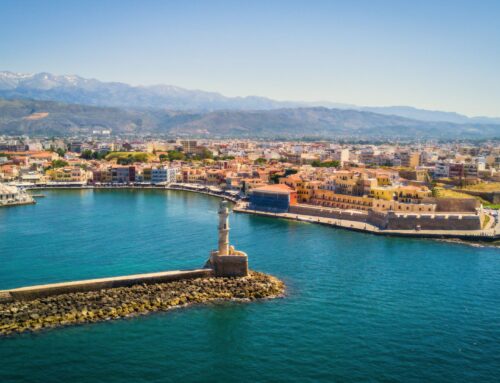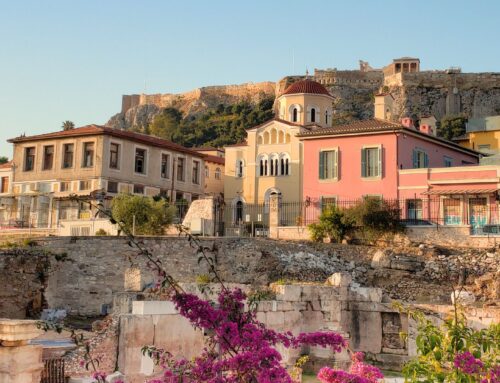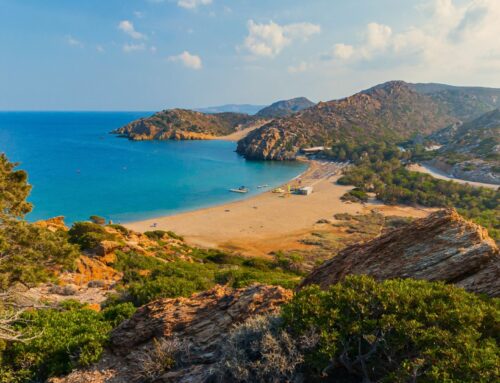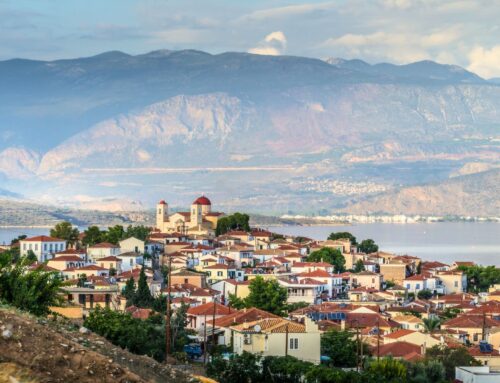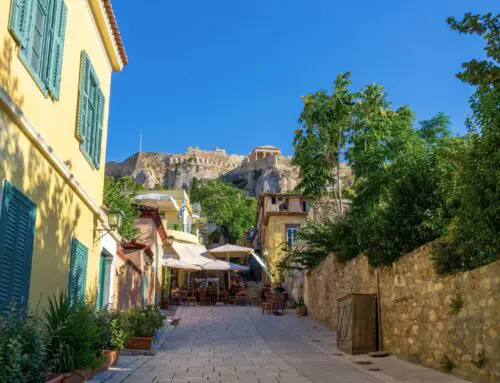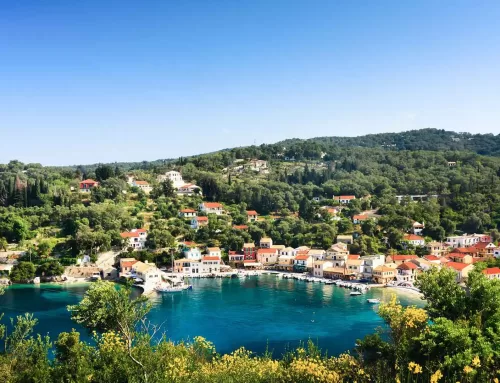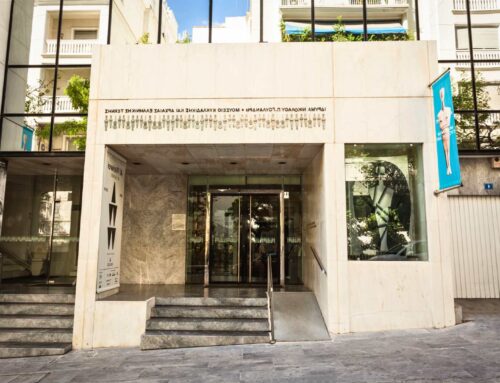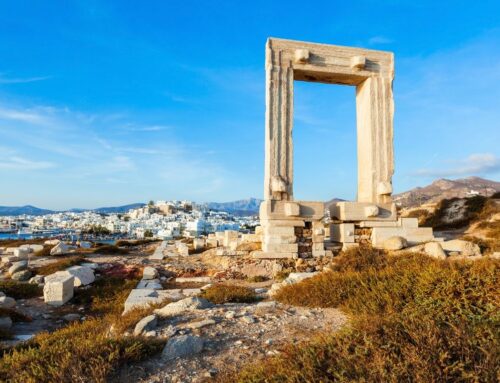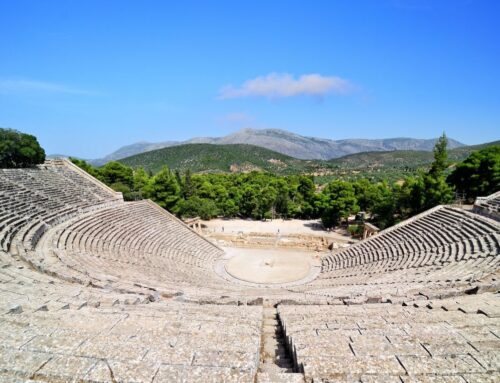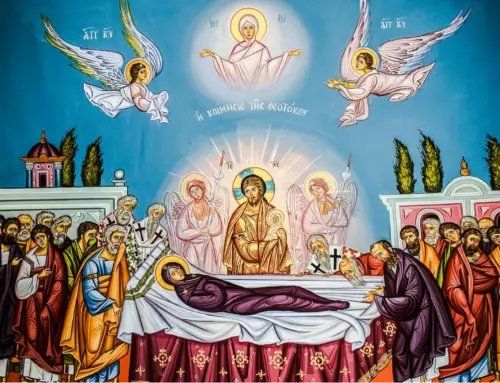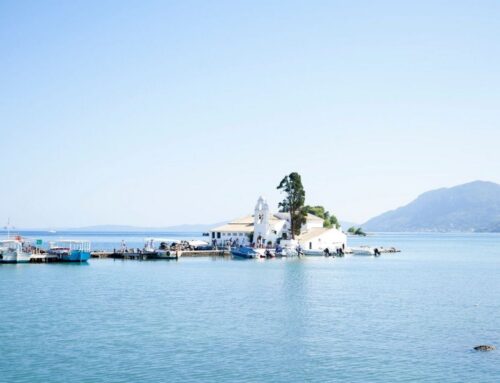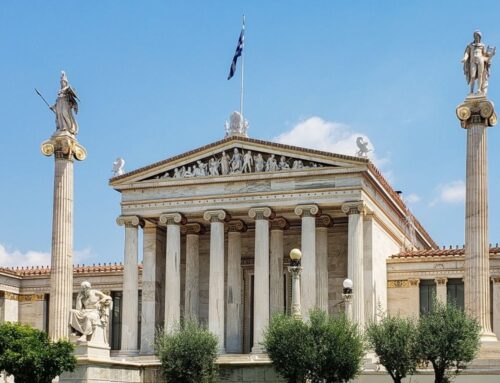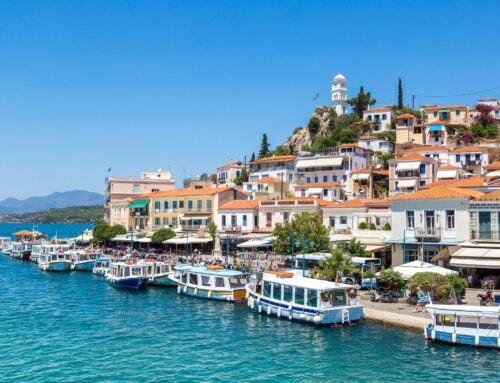10 Greek Traditions That Will Make You Feel More Greek
10 Greek Traditions That Will Make You Feel More Greek
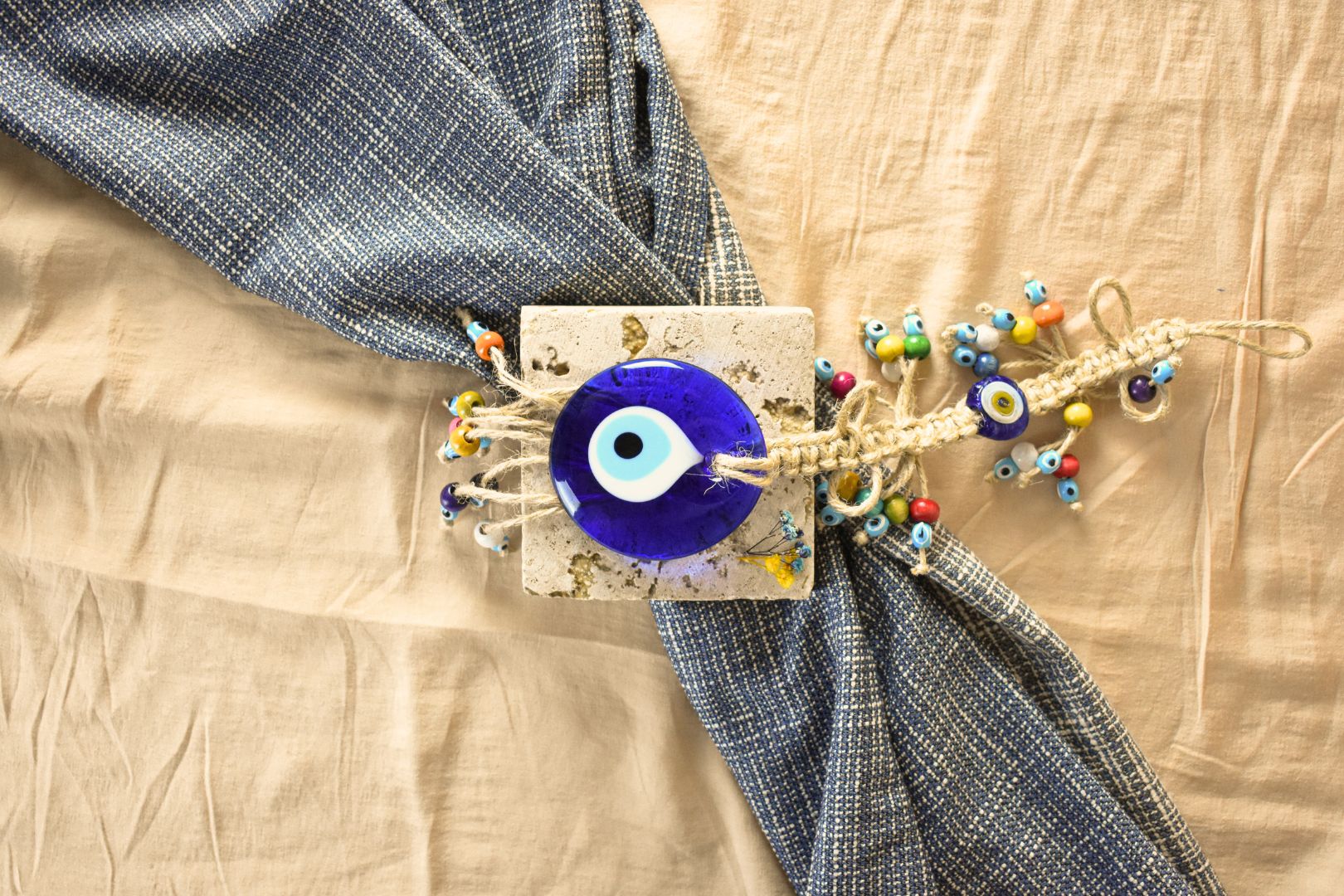
☞ Table of Contents:
Knowing more about the customs and traditions of a country can make your visit more enjoyable!
The main things that characterize a nation are its history, tradition, and culture. You all know that Greece is famous for its history and sunny days, so we have the first out of the three points. In this post, we will explore some Greek traditions in order for you to become familiar with the other two points. You may know some of them and be surprised by some others. By the end of this post, we guarantee that you will feel Greeker than the Greeks!
1. Epiphany – Catching the cross
Epiphany is one of the Public Holidays of Greece. On the 6th of January we celebrate the baptism of Jesus Christ by John the Baptist in the Jordan River. It is one of the most important days for all the Orthodox Christians, as it is a day of joy and brightness.
People gather around a body of water, such as a lake, river or the sea and the priest throws a special cross into the now blessed waters. Young men and other people, jump into the water to find it. The one that finds the cross and returns it to the priest is said to be blessed for the whole year.
2. Ragkoutsaria
One of the most famous traditions in Greece, takes place in the city of Kastoria, on the days following the Epiphany celebrations. Between the 6th and the 8th of January, people get dressed up with symbolic and often scary masks to exorcise the evil spirits from the city. The masked men beg passersby for some coins as payment for successfully casting away the evil spirits.
The whole city participates in the celebrations and the “after-party”, when all gather to eat traditional delicacies of the region as well as drink and dance to traditional Greek rhythms.
3. Apokries – the Greek Carnival
The Greek Carnival is a celebration with street parties, parades, and masquerades, similar to Carnivals in other Western Christian countries. There are a lot of family friendly events for the little ones that enjoy dressing up. Like the Latin root of the word “carnival”, the word “apokries” comes from the words apochi and kreas (abstinence and meat) so, “avoiding meat”. The start of the carnival marks the days before the fasting begins. There is not a specific date but it usually takes place between February and March.
The Carnival is celebrated 3 weeks before the 40 days of fasting or Lent begin. The first week of the carnival starts with a specific church celebration. The second week is called Kreatini (from the word kreas, which means meat), and you are allowed to eat meat every day. The third and last week is called Cheese Week or White Week when you are not allowed to eat meat, just dairy and fish.
Some accounts state that the origin of this Greek tradition comes from an Ancient Greek festival. Back then, great gatherings were organized, where people amused themselves by eating, drinking and dancing. The reasons for the celebrations were the change of the season from winter to spring, and the glorification of God Dionysus. Dionysus was a God of contradictions, being the god of both fun and aversion, germination, fertility, and wine making. Nowadays, people mark the day by getting dressed up and participating in street parades, with the city of Patra hosting the most popular carnival in Greece. Other famous parades take place in the city of Xanthi and Rethymno.

4. Tsiknopempti
Since we are talking about Easter and the Lent period, we have to mention Tsiknompempti. Tsikno means the smell of the grilled meat and Pempti means Thursday. So, this Thursday is the day when you have to eat as much meat as possible. All the taverns and restaurants are full, as people are taking their families out to celebrate and eat grilled meat.Tsiknopempti is the day when the parties start and the first masquerades for the Greek Carnival make their appearance.
5. Kathara Deftera – Clean Monday
Clean Monday marks the end of the Greek Carnival and the beginning of the 40-days Lent. On this day believers are called to leave behind their sins and prepare themselves for Easter and Lent by giving up meat-eating for 40 days. During this day, the menu consists of seafood, like cuttlefish and octopus and different shellfish, like shrimp and mussels. A traditional dip “taramosalata”, which is made of the salted and cured roe of carp or cod, is a must-have on this day. “Lagana” is another one of the foods consumed on Clean Monday. It is a special kind of flatbread, baked only on that day.
☞ Related: 10 Best Restaurants and Taverns in Thessaloniki favored by locals
According to Greek tradition, it is customary to fly kites on Clean Monday. Families go on outdoor excursions to beaches and open areas and usually have picnics if the day is pleasant. The flying of the kite is a symbol for the catharsis of the soul after the Carnival celebrations.
Clean Monday is a public holiday in Greece and Cyprus and is one of the most important Greek traditions.
6. Virgin Mary Snakes in Cephalonia
This is less of a Greek tradition and more of a phenomenon (or miracle for Christian believers) that occurs every year on the island of Kefalonia. On the 15th of August is the celebration of the Dormition of Virgin Mary. During the service in the church of the Virgin Mary in Markopoulo village, harmless little snakes appear inside and around the church and at the end of the day they disappear.
The legend says, that during an attack on the monastery by pirates, the nuns prayed for their rescue. After that, snakes appeared and chased away the pirates. The villagers watch the little snakes make their appearance every year around the monastery, while believers hurry to touch them to bring good luck to them and their families.
7. The Evil Eye
The evil eye is a superstition that a great percentage of Greeks believe in. A person that is said to have received the evil eye gets a strong headache and a string of “bad luck”. The causes of evil is bad intentions towards you. If someone wishes you ill and has bad thoughts while looking at you, then you may get “evil-eyed”.
☞ Related: 35 Interesting Facts About Greece You Absolutely Have To Know
In order to get rid of the evil eye, you may want to perform some rituals. The first step is to recite a special incantation three times to ward it off. Knowledge of the incantation is usually passed down from one generation to another and could differ according to region. During this, if both persons, the one reciting and the one afflicted, start to yawn, then the evil eye is true. Some methods you may want to use to avoid the evil eye and the bad luck it brings are spitting on someone, throwing salt over your shoulder, and wearing a special evil eye charm.
These have become common decorations and are almost always blue with a painted “mati” or eye on them.
The superstition of the evil eye comes from ancient times and it is something that the Orthodox Church accepts and primarily attributes to envy and hatred shown towards another person. While, the younger generation tend to not believe in the evil eye anymore, older people still believe and try to protect themselves from the eye.
8. Martis
Martis in Greek means March. On the first day of March, the Greeks wear a red and white bracelet made by a thread which is called Martis. This bracelet should be worn during the whole month of March. With this age-old tradition, the Greeks celebrate the beginning of spring.
The colors of the bracelet are not random or meaningless. The white symbolizes purity while the red represents passion and life. During ancient years, the bracelet was used as protection from diseases and the spring sun. The person wearing it has to tie the bracelet to a tree when he/she sees the first signs of spring.
This Greek tradition is still practiced today and if you visit Greece in March you should try to spot the little red and white strings on people’s wrists.
9. The Christmas Boat
Traditionally, Greek people used to decorate a Christmas boat rather than a Chrstimas tree. Here we see how the connection between the Greeks and the sea is so deep, that it affected every aspect of life. As a symbol of this connection, the boat was decorated in honor of the sailors returning home to their families for Christmas.
The familiar to the western countries Christmas tree decoration, made its first appearance in Greek society back in the 19th century when Bavarian Otto was the king of Greece. Even now a lot of the islands, choose to use the traditional Christmas decoration of the boat instead of the foreign tradition of the tree. Also, most Greek cities choose to display a Christmas boat as the main Christmas decoration at the main square.
10. Plate Smashing
When it comes to going out and celebrating, Greeks do it better! The smashing of plates was one of the most famous Greek traditions and when someone was having a blast and wanted to express his joy and appreciation for the music played, smashing some plates was in order.
Although the plates were not porcelain but plaster, this tradition was banned in 1969 on all live stages or bouzoukia as they are said in Greek, due to the possibility of accidents. The plates were replaced by throwing flowers at the feet of the singer. Some famous singers are actually covered by flowers from the audience while singing.
Nowadays, it is more likely to see someone smash plates in a small taverna or private celebration. If you happen to be in part of one of these private celebrations, you are definitely one of the few!
These were just a few Greek traditions that form the Greek culture and lifestyle. Let us know in the comments below if you have some of these traditions in your country or if it was the first time hearing them.
*Disclaimer: This page might include affiliate links. If you decide to book something through one of them, I might get a little bonus, but it won't cost you anything extra.*


